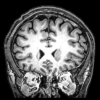I just got an idea for a stack making dopamine receptors more sensitive.
Dopamine Sensitivity:
Diets enriched in foods with high antioxidant activity reverse age-induced decreases in cerebellar beta-adrenergic function and increases in proinflammatory cytokines.
Gemma C, Mesches MH, Sepesi B, Choo K, Holmes DB, Bickford PC.
James A. Haley Veterans Affairs Medical Center, Tampa, Florida 33612, USA.
Antioxidants and diets supplemented with foods high in oxygen radical absorbance capacity (ORAC) reverse age-related decreases in cerebellar beta-adrenergic receptor function. We examined whether this effect was related to the antioxidant capacity of the food supplement and whether an antioxidant-rich diet reduced the levels of proinflammatory cytokines in the cerebellum. Aged male Fischer 344 rats were given apple (5 mg dry weight), spirulina (5 mg), or cucumber (5 mg) either in 0.5 ml water by oral gavage or supplied in the rat chow daily for 14 d. Electrophysiologic techniques revealed a significant decrease in beta-adrenergic receptor function in aged control rats. Spirulina reversed this effect. Apple (a food with intermediate ORAC) had an intermediate effect on cerebellar beta-adrenergic receptor physiology, and cucumber (low ORAC) had no effect, indicating that the reversal of beta-adrenergic receptor function decreases might be related to the ORAC dose. The mRNA of the proinflammatory cytokines tumor necrosis factor-alpha (TNFalpha) and TNFbeta was also examined. RNase protection assays revealed increased levels of these cytokines in the aged cerebellum. Spirulina and apple significantly downregulated this age-related increase in proinflammatory cytokines, whereas cucumber had no effect, suggesting that one mechanism by which these diets work is by modulation of an age-related increase in inflammatory responses. Malondialdehyde (MDA) was measured as a marker of oxidative damage. Apple and spirulina but not cucumber decreased MDA levels in the aged rats. In summary, the improved beta-adrenergic receptor function in aged rats induced by diets rich in antioxidants is related to the ORAC dose, and these diets reduce proinflammatory cytokine levels.
Delayed inhibition of dopamine synthesis by gamma-butyrolactone and baclofen: dopamine autoreceptor supersensitivity?
Argiolas A, Fadda F, Melis MR, Marcou M, Porceddu ML, Gessa GL.
The administration of gamma-butyrolactone (GBL) (750 mg . kg-1 i.p.) and baclofen (20 mg . kg-1 i.p.) to rats caused a transient increase followed by a long-lasting decrease in striatal dopamine (DA) synthesis, as measured by DOPA accumulation after decarboxylase inhibition. DA synthesis was reduced to 40-50% of the control value for 2-12 h following either treatment. The GBL- and baclofen-induced inhibition of DN synthesis was reversed by haloperidol (2-5 mg . kg-1 i.p.) and by a second dose of baclofen or GBL. The subcutaneous dose of 15 mg . kg-1 of apomorphine, insufficient to decrease DA synthesis in control rats, produced a further decrease in DA synthesis in animals pretreated with baclofen. These results suggest that the delayed DA synthesis inhibition following GBL or baclofen treatment was due to stimulation of supersensitive DA autoreceptors.
Dopamine modulates the inhibition induced by GABA in rat cerebral cortex: an iontophoretic study.
Beauregard M, Ferron A.
Departement de Physiologie, Faculte de Medecine, Universite de Montreal, Quebec, Canada.
Effects of iontophoresed gamma-aminobutyric acid (GABA) and two GABA agonists, 4,5,6,7-tetrahydroisooxazolo-[5,4-c]pyridine-3-ol (THIP) and baclofen were quantitatively compared in the anterior cingulate, frontal, and parietal cortex of urethane-anesthetized intact rats after catecholamine (CA) depletion with alpha-methyl-p-tyrosine (alpha-MPT) or selective dopamine (DA) denervation with 6-hydroxydopamine (6-OHDA). As assessed with to the IT50 index, the postsynaptic sensitivity to GABA was significantly higher in anterior cingulate than in frontal and parietal cortex. The responsiveness to GABA was also greater in frontal than in parietal cortex. Sensitivity to GABA was significantly reduced in both anterior cingulate and frontal cortex after CA depletion, and similarly, after DA denervation with 6-OHDA. The difference in the sensitivity to GABA between the three cortical regions in intact rats as well as after CA depletion did not seem to be correlated with either GABAA or GABAB receptors since the responsiveness to both GABA agonists in every region examined was comparable in intact rats, and remained unchanged after alpha-MPT treatment. This finding raises the possibility that some GABA receptors in the cerebral cortex may be pharmacologically distinct from the two main subtypes of GABA receptors, GABAA and GABAB. When GABA was administered by iontophoresis in the anterior cingulate cortex during continuous applications of subthreshold currents of DA, the inhibition induced by GABA was either increased or decreased. As DA innervation density is nearly two-fold greater in anterior cingulate than in frontal cortex, and 30-fold greater in anterior cingulate than in parietal cortex, these results suggest that responsiveness to GABA may be correlated with the regional density of DA innervation and that elevated levels of DA may enhance the sensitivity to GABA.
This is a possible stack:
Step 1 protect Dopamine receptors.
Take antioxidantes permanitly.
Step 2 increase Dopamine receptors.
Sulbutamine and CDP-Choline, for about a month or 2.
Step 3 make dopamine receptors sensitiv:
A GABA agonist Picamilon, Phenibut, Ashwagandha, l-theanine, or lemon balm(melissa), for about month.
Step 4
Rest from Step 2 and 3, and take a DRI as needed.
Step 5
Cycle Step 2, 3, and 4.
List of DRI:
Amineptine (Has been remove from the market in most parts of the world.)
Altropane (O-587)
Amfonelic acid (WIN 25978)
BTCP (GK-13)
DBL-583
Difluoropine (O-620)
GBR-12935
GYKI-52895
Iometopane (β-CIT, RTI-55)
Medifoxamine
RTI-229
Vanoxerine (GBR-12909)
Natural DRI:
Chaenomeles speciosa (Flowering Quince, Mu gua)
Hyperforin, Adhyperforin (2 counponts of St. John's Wort)
What's your take on this?
Edited by noot_in_the_sky, 27 May 2013 - 02:16 PM.




















































